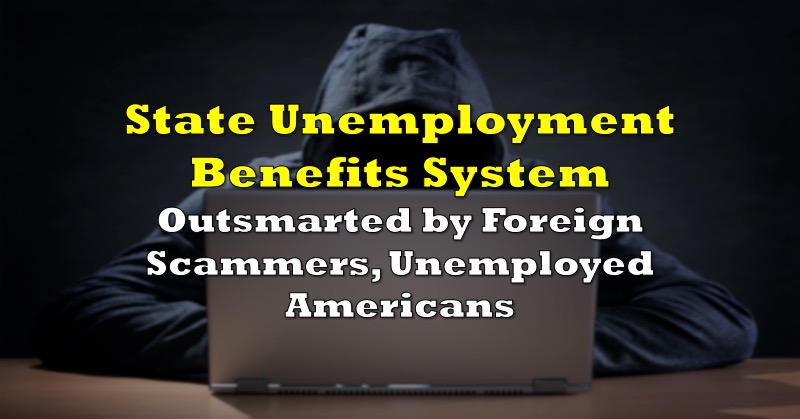When the coronavirus suddenly impaired almost the entirety of the US economy, Congress had to swiftly employ some sort of monetary prop-up as a means of mitigating the onslaught of newly-unemployed Americans. In doing so, the federal government rushed through unemployment benefit applications in order to quickly send out payments to those facing financial hardships. Turns out however, that the government’s inattention is going to cost the American taxpayers a lot more than they bargained for.
As previously reported on the Deep Dive, Washington state’s Employment Security Department embarrassingly announced they have been defrauded of millions of dollars by Nigerian scammers, as a result of bogus unemployment benefits claims. It turns out however, that such fraud has not only occurred in Washington but other states as well, and is the result of American’s identities being stolen from a variety of previous data breaches.
Given that the state’s unemployment benefits system is not adequately prepared to process such a large amount of claims in such a short period of time, a significant vulnerability was exposed. These scammers were able to successfully compile a a list of personal data, which they then used to file a fraudulent claim. Then they simply had the benefits deposited into a prepaid debit card account under Jane Doe’s name, and once successfully received, the funds were quickly transferred into overseas accounts. By the time this extensive fraud circle was identified, it was already too late. Scammers from Europe, Africa and Asia had already made the funds disappear, and there is a good chance the US government won’t be able to do a thing about it.
As if that wasn’t enough to grief for the federal government (and inadvertently the taxpayers), the recent top-up of an additional $600 in state unemployment benefits has lead to even more implications. It turns out that after the top-up, some Americans were receiving more in benefits than their previous salary- thus de-incentivizing the need to return to work once restrictions are lifted. Alas, both state and federal governments have been outsmarted – now the money question is: will they learn from their mistakes?
Information for this briefing was found via Zero Hedge and RT News. The author has no securities or affiliations related to this organization. Not a recommendation to buy or sell. Always do additional research and consult a professional before purchasing a security. The author holds no licenses.









